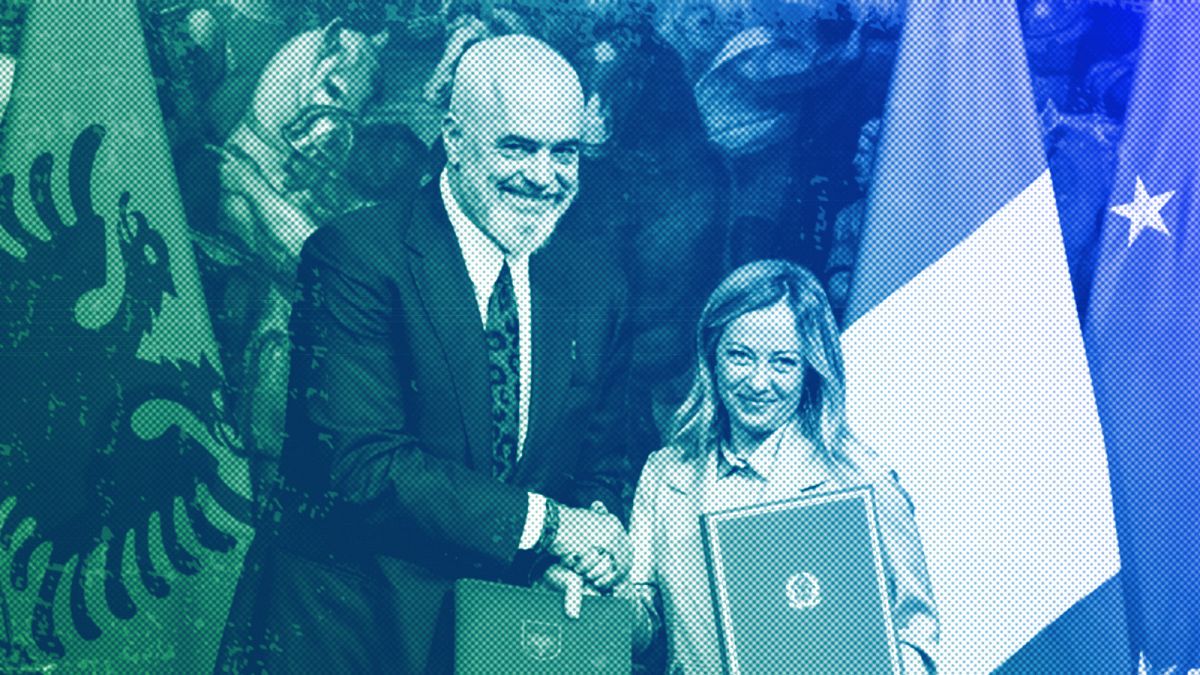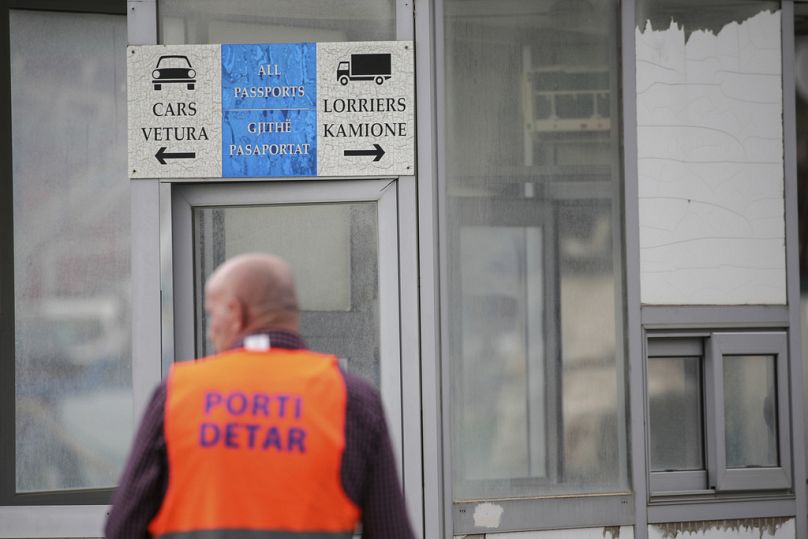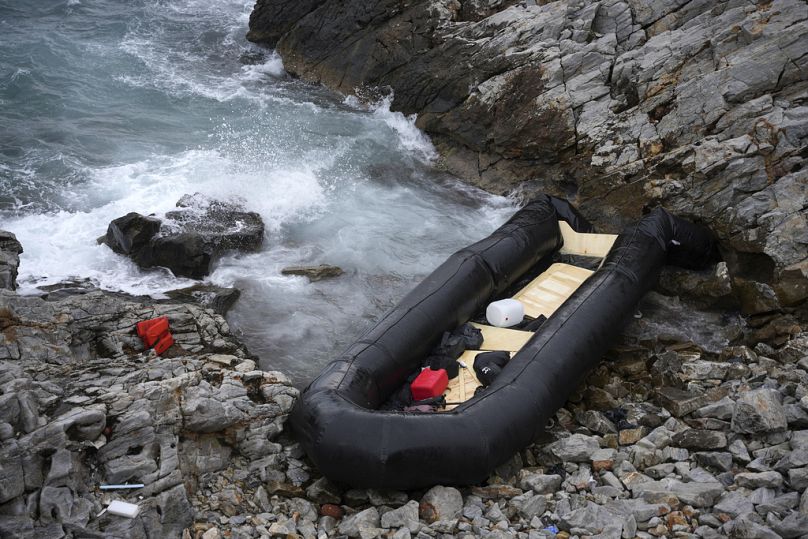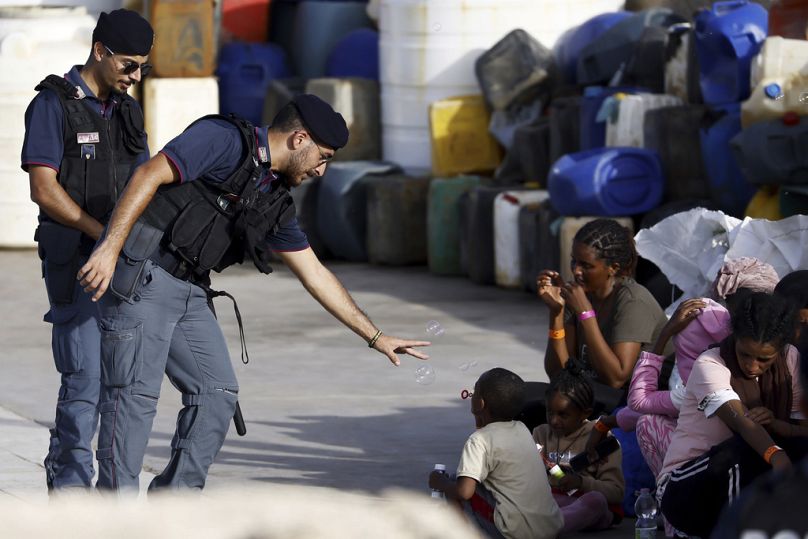Deals with non-EU countries simply exacerbate the dangers and suffering that people in need of international protection face by pushing them into the hands of smugglers or traffickers, and onto ever more perilous routes, Harlem Désir and Susanna Zanfrini write.
In the Italian city of Trieste, up to 400 people shelter each day in a crumbling, abandoned building next to the train station.
This is not out of choice. With an average wait of 70 days before asylum seekers can access formal reception facilities, they have nowhere else to go.
And while the International Rescue Committee (IRC) and other NGOs work tirelessly to provide food, water, information and legal advice, it’s simply not enough to match the soaring level of needs.
It’s clear that EU member states like Italy need to urgently invest in their reception systems, ensuring these are part of a safe, orderly and humane approach to migration.
Everyone should have a secure place to sleep and access to their basic needs — particularly people with vulnerabilities such as women and children.
However, in the glaring absence of a sustainable EU asylum system rooted in solidarity and relocation, which would ease the pressure on Europe’s southernmost states, many are taking a different path.
A way of outsourcing responsibility
A number of European governments have instead been exploring deals with non-EU countries intending to stop asylum seekers from setting foot on their soil in the first place.
The most recent of these is Italy’s new agreement with Albania. This would see the majority of people rescued at sea in Italian waters sent directly to Albania, where they would be held in detention centres while their asylum claims are considered.
This is not the first time a member state has looked into the possibility of outsourcing responsibility for asylum and migration management in this way, but there are fundamental reasons why these past proposals have not gone ahead: they are costly, cruel, counterproductive, and legally dubious.
One key concern is that EU states are legally required to uphold the right to seek asylum, regardless of how people arrive on their territory.
The proposal to send people rescued at sea to Albania is in clear contravention of this legal principle — not to mention the union’s values of respect for human rights and dignity.
Secondly, Italy cannot guarantee that people’s rights will be upheld in their two planned detention centres in Albania.
While the Italian government has said that its new rules will not apply to pregnant women, children or people with vulnerabilities, the deal does not explicitly confirm this, and huge questions remain as to how this exemption would be implemented in practice.
Pushing people into harm's way
Moreover, it is still far from clear how people held in the Albanian centres would access legal advice.
The IRC’s teams on the Greek islands have evidenced the devastating impact of de facto detention on asylum seekers’ mental health, where 95% of people supported by our psychosocial teams in 2023 reported symptoms of anxiety and 86% of depression.
It is difficult to see how this will be mitigated in Albania — a country that is not bound by EU rules and regulations.
Thirdly, the EU’s deals with Turkey and other countries such as Libya and Tunisia provide clear evidence that deterrence measures will not stop people from risking their lives in search of safety and security in Europe.
If anything, they simply exacerbate the dangers and suffering that people in need of international protection face by pushing them into the hands of smugglers or traffickers, and onto ever more perilous routes.
Evidence shows that attempting to deter asylum seekers by creating harsher policies has little to no effect on arrival numbers.
Not only do these policies push people into harm’s way and violate fundamental rights, but they do not even succeed in their terms of deterring asylum seekers. It’s time for the EU and its member states to forge a different approach.
No one risks their life if there are other options
European leaders should start by shifting their focus away from preventing people from reaching EU territory, to protecting them along their journeys.
The IRC’s teams in Italy, and more broadly across Europe, see every day the difference that dignified reception can make to the lives of people seeking protection.
Italy must meet the obligations laid out in the EU Action Plan on Integration and Inclusion to ensure that all newcomers are welcomed with dignity and respect.
Our experience shows that when people are supported to integrate from day one, it brings immense benefits both to new arrivals and their host communities.
More than 3,000 people died or went missing attempting to cross the Central Mediterranean in 2023, bringing the total over the past decade to almost 30,000 individuals — many of whom would have been granted refugee status if they had made it to Europe.
Nobody puts their lives in the hands of smugglers unless they cannot access other options. The EU and its member states must urgently expand safe routes so people are not forced onto these dangerous journeys.
This will require significantly scaling up resettlement — a vital lifeline enabling the transfer of refugees from their first country of asylum to safety in Europe — on which EU states have failed to meet their joint commitments year-on-year.
This must be completed by expanding other safe routes such as humanitarian corridors, family reunification and visas for work or study.
An opportunity to do things right might just slip away
Last week, the EU Pact on Migration and Asylum — which will pave the way for the EU’s approach to migration in the coming years — was approved by EU states.
It is crucial to ensure that this does not result in even more deterrence, violence and detention of people entitled to international protection.
At this pivotal moment, it is essential that EU member states go above the minimum standards set out in the pact, and lose no time in creating the right environment for refugees and asylum seekers to thrive.
If they fail to do so, they will see the opportunity to create a safe, orderly, and humane asylum system slip ever further from view.
Harlem Désir is the International Rescue Committee’s (IRC) Senior Vice-President, Europe, and Susanna Zanfrini is IRC’s Italy Country Director.
At Euronews, we believe all views matter. Contact us at view@euronews.com to send pitches or submissions and be part of the conversation.



